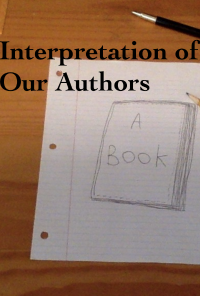Interpreting Remarque
If reincarnation is, in fact, real, and I were a writer in some past life…I believe that that writer would have been Erich Maria Remarque. I do not say this to promote myself, and I am not saying that I am as good at or worse at writing than Remarque, but, by reading “All Quiet on the Western Front,” in particular, I see that our writing styles are strikingly similar.
Firstly, there is the ironic title. Any reader glancing across bookshelves who sees the words “All Quiet on the Western Front” could easily assume that the Western Front was anything but quiet. Then there is the way in which Remarque treats his characters. I will admit, in my stories, I write as if I were a bloodthirsty maniac. I build my characters up, and I try to get my readers to take a liking to them, and then I mercilessly squash them between my fingers and rub the blood into my palm. Remarque is not as dramatic, I’ll admit, but he professed a similar tendency in “All Quiet on the Western Front.”
He would introduce a character that we perhaps may find ourself journeying alongside throughout the progression of the story, and then…Gone. Some of the earliest chapters of the book allude to the hardships which shall befall Remarque’s poor characters - death, humor in the face of constant danger, a more or less concession of civilian values to the practicality of military living…
Remarque, however, unlike myself, was unfortunately drafted into the German Military, and was wounded on the Western Front in 1917. The wartime experiences that Remarque underwent are largely regarded as the inspiration for his most famous work, which is, of course, “All Quiet on the Western Front.”
As splendid as a writer Remarque was, however, I feel as if he perhaps was not as much of a master of dialogue as Hemingway, nor as profound at creating imagery as Sinclair. No, I often found parts of “All Quiet on the Western Front” confusing, excessive, or requiring a quick backtrack in the reading. But, who am I to discern what should and what should not be? I was not alive in the early 1900s, I could merely attempt to read this book within the context of the time as best I could. But that is the purpose of this book you are reading right now - to convey what I, a more or less average reader, thought of a profound work of literature.
It cannot be denied that, shortly after the publication of “All Quiet on the Western Front,” it took the world by storm. Even today, when seeking recommendations for Great War reads, fact or fiction, I am often met with that splendid and classic work by Remarque. And it is in that work that Remarque expressed what I believe to be his main strength - character development. His outright explanation of who every character is and a little bit about their backgrounds within the first few pages of the book is a little cliche (though I also tend to do the same thing in writing), but a short way through the story, I felt like I almost had a real connection with these characters. Although, at the same time, I did not, nor could I ever have, because, to state it frankly, I was a civilian, and they were soldiers.
Even such, I felt more for a character’s death in “All Quiet on the Western Front” than I have felt for a character in almost any other work of fiction (save in “A Farewell to Arms,” as I have formerly stated). And then, of course, the ending of the book - an ending so small and seemingly insignificant that I nearly flipped right past the page on which it was printed - was the final shock. I will not give away this ending out of respect for anyone who may be reading this who does not already know what it is, but to those of you who have taken the time to read “All Quiet on the Western Front,” you know that it is short, simple, and above all, tragic (and, in my case, somehow unexpected). Remarque had, in my opinion, the ability to turn a character, into a companion, not merely within the context of the stories he wrote, but in the eyes of the reader, as well.
